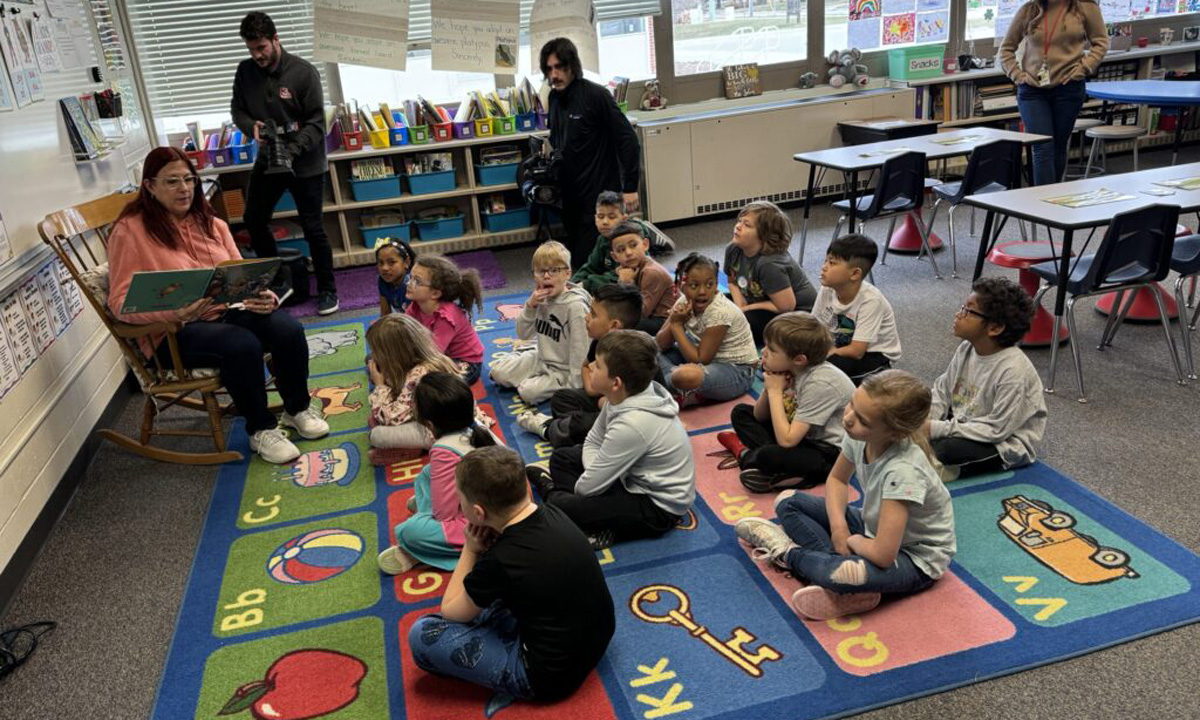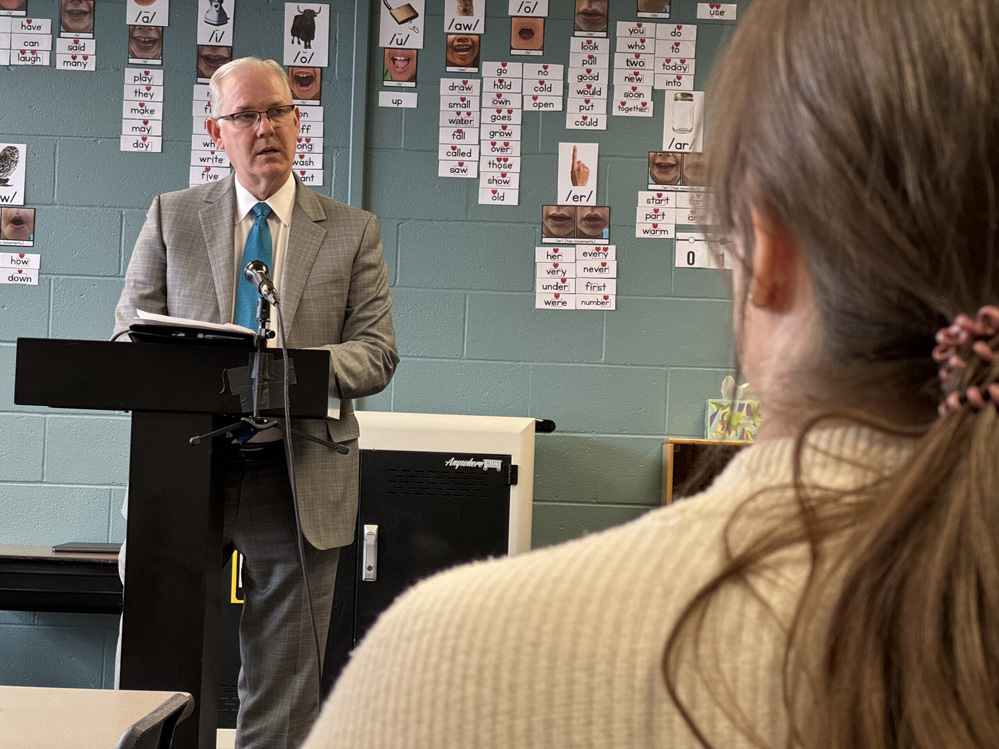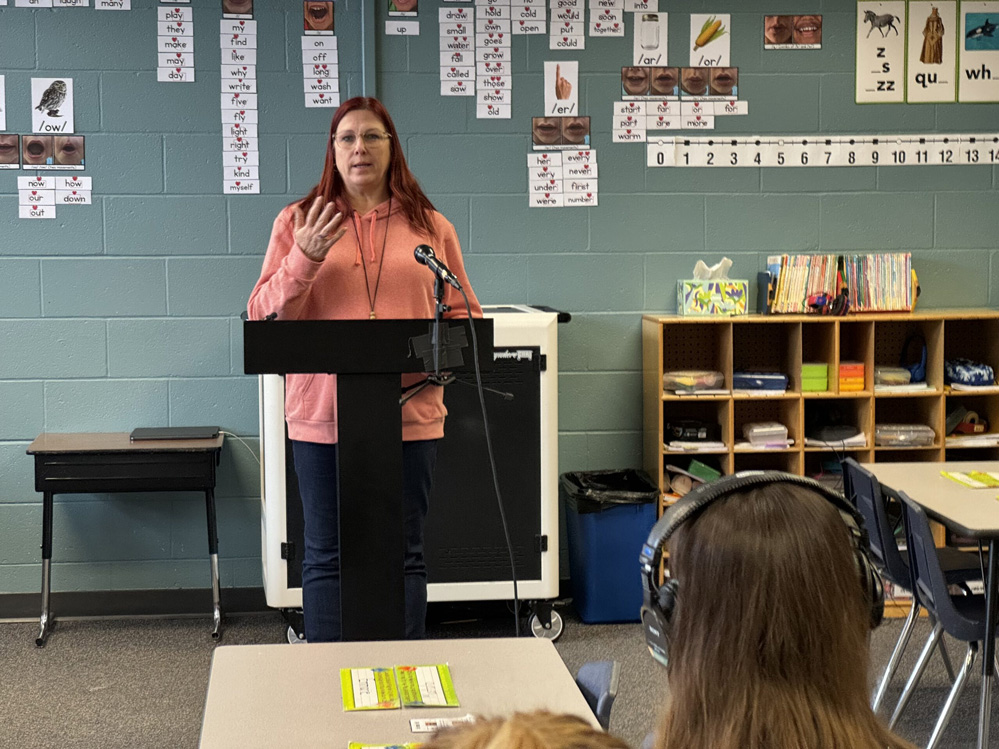Pilot Program Aims to Help More Nebraska K-12 Paras Become Teachers
Omaha Westside, Lincoln Public Schools and North Platte Public Schools join pilot program.

Get stories like this delivered straight to your inbox. Sign up for The 74 Newsletter
OMAHA — Three Nebraska K-12 school districts are planting future teachers this spring in a new pilot program the Legislature seeded last year with $1 million.
North Platte Public Schools, Lincoln Public Schools and Westside Community Schools in Omaha are joining with higher education institutions and the state to ease the path from para-educator to teacher.
Passing Legislative Bill 705 was one of several small steps the Legislature took in 2023 to give local school districts more tools to address an ongoing shortage of classroom teachers.
Once accepted, program participants — the classroom aides or educational assistants — can cut the cost and time it takes to complete a tailored teacher education program.
Credit for classroom work
The program’s higher ed partners at Chadron State College, the University of Nebraska-Lincoln and Midland University will grant college credits to paras for some of their classroom experience.

Organizers call it the “apprenticeship model.” Paras are paired with mentor teachers in their schools who serve as co-teachers and offer feedback to the paras and college faculty.
State Education Commissioner Brian Maher announced Westside as the state’s third pilot district Wednesday at Westbrook Elementary School, where ed assistant Shelly Sip helps kindergartners with reading.
Sip said she participates in a district-funded precursor to the state program. That program pays for an undergraduate teaching program at Midland at night while she works full-time during the day.
The 15-year ed assistant said she and many other para-educators want to be teachers but could not afford to attend a teacher education program without financial help from the district or the state.
“I wanted to be in the front of the room,” she said. “I wanted to make the lesson plans. And I found out that Westside is doing the program … and the district will pay for my education.”
She said she has benefited from seeing classrooms in her role as an education assistant. She helps lead reading groups, helps with math and walks kids to recess and lunch.
She said she attended the district, sent her kids to the district and now wants to teach there.
“I’m here, and I’ve been here since kindergarten, and I will be here for probably ever,” she said.
Another tool for school hiring
Andrea Haynes, Westside’s assistant superintendent for human resources, said the new program would reduce the time that paras spend outside of the classroom preparing to become teachers.
She called the program a “groundbreaking partnership” that shows the district and the state’s commitment to “nurturing talent and fostering a strong educational community.”

She said it helps address the teacher shortage by “building a sustainable pipeline of amazing educators right from our own classrooms.”
“We believe this innovative model not only accelerates their path to becoming certified teachers, but it also empowers them to elevate their impact,” Haynes said.
Mary Ritzdorf, dean of the Walker School of Education at Midland, said the university and Westside were still working out specifics of how many credits paras could earn while at work.
Traditional students in teaching programs don’t get into classroom settings regularly until their final year of college. In this, officials said, paras have an edge.
The apprenticeship model would likely, among other things, help accepted paras to stay working in their schools through their student teaching, reducing the need for substitutes.
More certified teachers needed
Nancy Christensen, the associate professor of education who runs Midland’s teaching programs for ed assistants and paras, said the goal is getting more qualified teachers certified.
The Westside district alone has 200 or so ed assistants, Haynes said, including many serving as helpers for special education teachers, general ed teachers and as hall monitors.
Using existing para-to-teacher programs, Westside expects to graduate about seven to eight paras this spring and 10-15 a year, she said. Each agrees to work five years in exchange for the aid. The length-of-service commitments vary from district to district.
Districts statewide are exploring higher pay, bonuses and benefits to lure new teachers and retain those they already employ, officials said Wednesday.
Maher said he understands they are “robbing Peter to pay Paul” by finding new teachers among the ranks of also difficult-to-hire paras.
“We need to fill both buckets, quite frankly,” he said.
LB 705 set aside $1 million a year for the program from the Education Future Fund. When asked whether he thought the Legislature might find more funding if the pilot program was successful, Maher said it appears more likely that school districts would fund such programs if they help find and hire teachers.
Nebraska Examiner is part of States Newsroom, a nonprofit news network supported by grants and a coalition of donors as a 501c(3) public charity. Nebraska Examiner maintains editorial independence. Contact Editor Cate Folsom for questions: [email protected]. Follow Nebraska Examiner on Facebook and Twitter.
Get stories like these delivered straight to your inbox. Sign up for The 74 Newsletter

;)